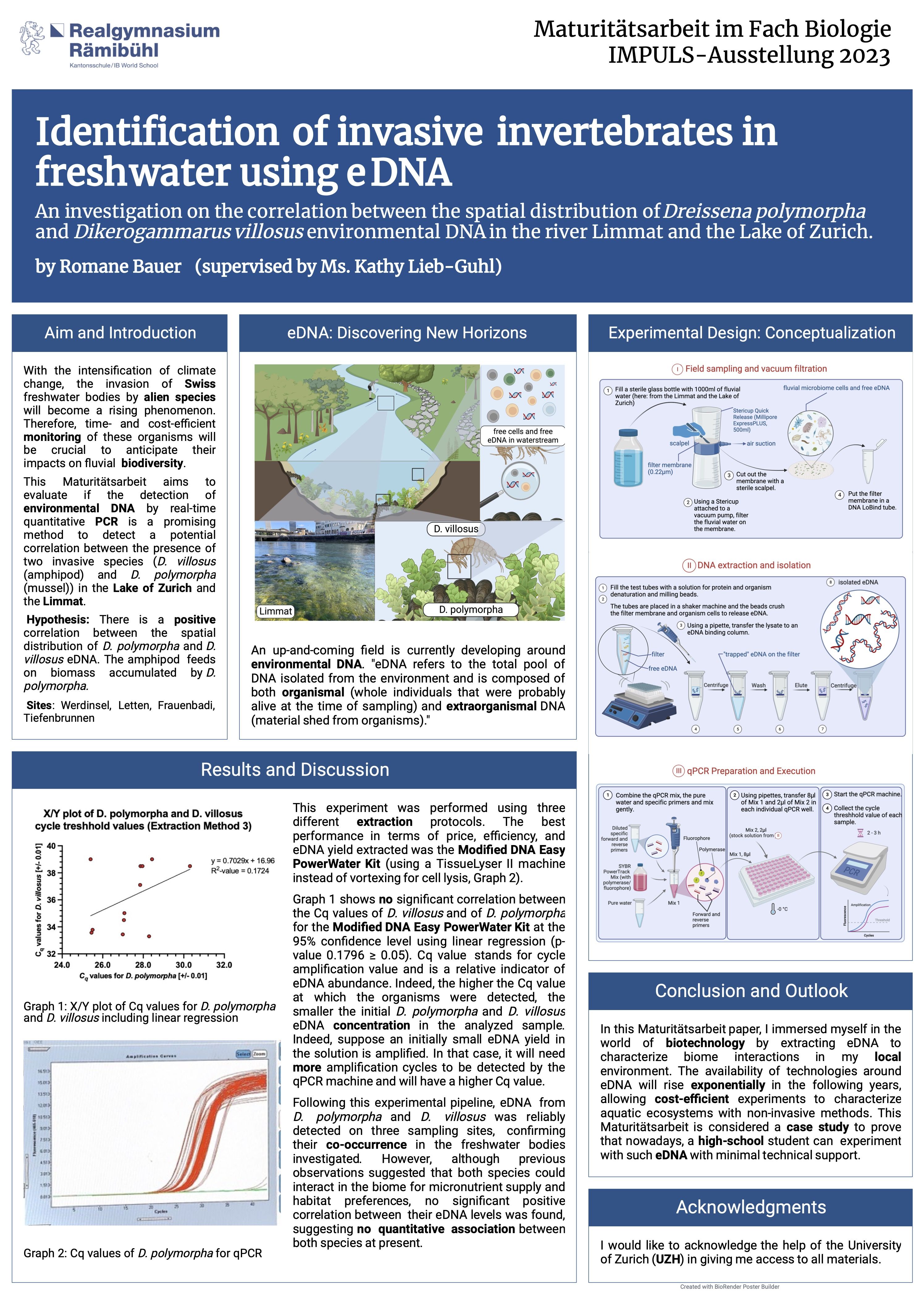Autor/-in:
Bauer Romane
Identification of invasive invertebrates in freshwater using eDNA
Lieb-Guhl Kathy
Seeholzer Christian
RG Rämibühl
Fach: Biologie
Abstract
Since the invasion of the zebra mussel Dreissena polymorpha and the killer shrimp Dikerogammarus villosus in Lake Zurich and the river Limmat over the last decades, their spatial distribution has been primarily investigated using kick-sampling, which is harmful to the biome and inefficient in terms of time and replicate numbers.
This Maturitätsarbeit aims to evaluate if the detection of environmental DNA by real-time quantitative PCR is a promising method in detecting a potential correlation between the presence of both invasive species.
«The main steps of the experimental design consisted of freshwater sampling on four sites along Lake Zurich and the river Limmat followed by water filtering on microporous membranes to immobilize the fluvial eDNA. The eDNA was then isolated. Lastly, species-specific eDNA detection by qPCR was performed. eDNA yield and qPCR amplification cycle values were acquired from multiple sampling sites and used as indicators of the relative eDNA abundance of each species.»
Following this experimental pipeline, eDNA from D. polymorpha and D. villosus was reliably detected on three sampling sites, confirming their co-occurrence in the freshwater bodies investigated. However, although previous observations suggested that both species could interact in the biome for micronutrient supply and habitat preferences, no significant positive correlation between their eDNA levels was found, suggesting no quantitative association between both species at present.
Im Prinzip so lassen - kommt halt darauf an, ob das so vereinbart wurde, eidgenössischeTerminologie im Original zu belassen.
